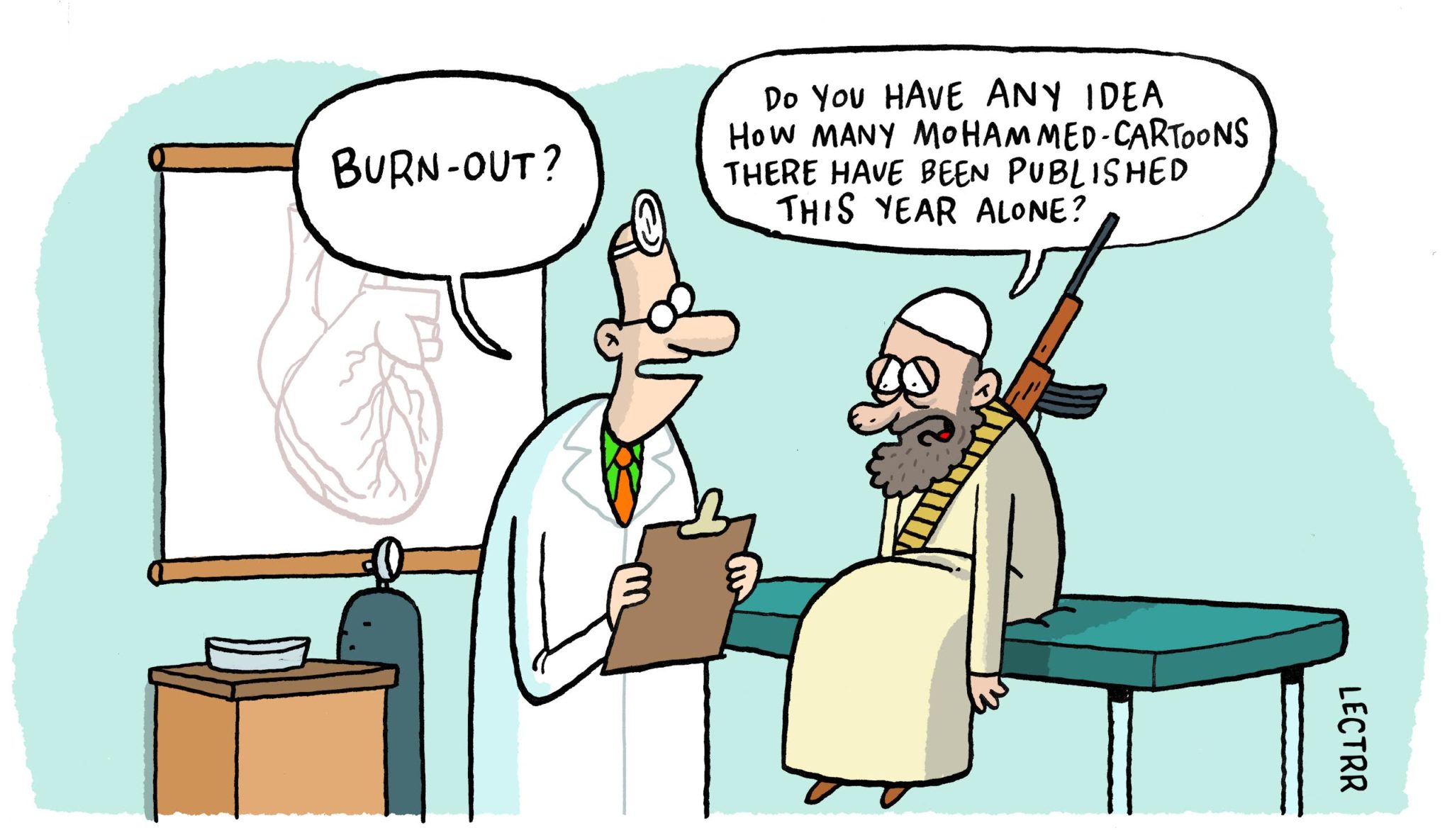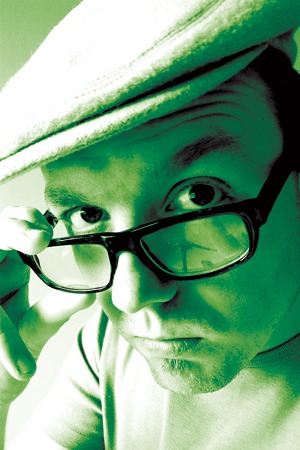Steven Degryse (known as Lectrr) is a Belgian political cartoonist residing in Ghent. He is regular contributor to the Belgian newspaper De Standaard. His famous Hara Kiwi series has been translated into several languages and published in numerous magazines across Europe.
Following the the attacks against the cartoon newspaper Charlie Hebdo and the Jewish Kosher store in Paris in January and the ensuing debate on freedom of speech, The Brussels Times met with Lectrr. Lectrr describes the days after the terrorist attacks in Paris as “completely crazy” for his part.
“I had two phones on me and they were ringing constantly. Everyone wanted to contact me and everyone wanted my opinion. People asked if I would draw Muhammed cartoons or if I was afraid to do so. Several Belgian cartoonists were asked to talk about it in a public debate at LUCA School of Arts in Ghent. The purpose was to grasp and process the events. What was going on? We are cartoonists and suddenly asked to become freedom fighters?”
Q. What role does political cartoonism have today?
A. I see us as the modern jesters of our time and our aim is to connect with people and to make them laugh. Back in the old days, jokers would be the only ones who would be allowed to make fun of the king while if anyone else dared to try, they would have their heads chopped. Now we are the modern jesters and we make fun of the political powers. We make fun of those in power because 'shit always goes downhill'. Politicians sit on top, and the people below. So it's our task to poke back at them. We don’t usually say much with the cartoons, the reader is welcome to think and interpret the picture as he wants but we do give some hints and pointers.
As a cartoonist you mustn’t be hateful to humanity – the purpose it to make people laugh. I think respect is important on a personal level but there should be no respect in our drawings. The moment something is holy, you can’t touch it. As cartoonists, the most interesting subjects to work with are those things that you can’t touch.
Having said all this, certain developments must be understood in the context of political cartoonism. Globalization, internet and technology are changing the very nature of cartoonism. I drew a cartoon after the Charlie Hebdo attack and immediately it became viral. In one day 200 000 people had downloaded it all over the world.
Does it make us global communicators all of a sudden? Or people just illustrating news? Traditionally political cartoonists have drawn pictures for their local newspaper or national newspaper. But it was aimed to a targeted group of audience with whom the cartoonist shared the same culture. We connected with them and they connected with us and we hoped they would connect to our drawings and laugh. With the internet and social media, my drawings are all of a sudden reaching the other side of the world. Maybe to a country and an audience who don’t share the same culture as me.
Going back to the days after the Paris attacks, I’m one day drawing funny people with big noses, big boobs or big butts and the next day I was a freedom fighter and asked to be in the forefront of some ideological discussion between cultures. It’s not our job and we don’t want to get sucked into it and it’s not because we are afraid. Everyone has their opinion and now we have to draw Muhammed?

I think it becomes a kind of intellectual colonialism if we in the west start drawing Muhammed. Like when Europe colonized Africa and told people to believe in God. Let them find out for themselves. I am sure that sooner or later Muhammed will also be drawn in a Muslim country by a local cartoonist. There is no right or wrong but a big grey area and cartoonists and I find it interesting to operate in this grey area. Everyone has their pace and we can’t force ourselves on other cultures.
Q. Lately we have heard people quoting Voltaire’s famous line “I do not agree with what you have to say, but I'll defend to the death your right to say it”. Do you agree?
A. Yes of course. Life would be dull if everyone agreed. I disagree with people all the time. It makes me think. I firmly believe there is no truth and I change my mind all the time. Standing or seeing things from a different angle, people change their points of view all the time. You can never grasp “the whole thing”. Discussing with people who you don’t agree with is an opportunity to learn. We’re here a short time so let’s make things interesting.
Q. Have you ever been scared to publish any drawings?
A. Not really. I get a lot of hate mails. It’s become part of the routine now. I’m neither left or right politically but I’ll be accused for all kinds of things. One day I’m pro one side of a current political affair and another day I’m accused of being on the other side in the same conflict. I think that part of the reason for receiving lots of hate mail is that it has become so easy nowadays to send something. With emails you can throw out something very quickly. Before you would need to write it down, think about it, go and print it and then post it, all the while you had more time to think about it. There might be a moment in that process where you tell yourself: “Hang on, is it really appropriate to curse and accuse so much? Maybe I should rephrase the letter or maybe I shouldn’t send it at all.”
Q. Not long ago Dutch cartoonist Gregorius Nekschot was arrested for his cartoons on the basis for incitement to hatred. During Nazi Germany, cartoons of Jews were depicted in Der Sturmer. Where do we draw the line? What is incitement to hatred and what is free speech? Do you have certain guidelines?
A. It’s a thin line to draw. I don’t think politicians should draw the line. In fact, every day that we make cartoons we break the law as we are insulting people. We’re doing something that we could be punished for but we can do it because nobody is taking us seriously. We are the jesters, the modern days “king’s jokers”, remember? We don’t take our role as freedom fighters, we just want to make people laugh and think. The moment that we become freedom fighters, politicans will be able to pass laws and make our work more difficult for us.
The problem with Neckshot was that he wasn’t trying to be a cartoonist anymore or a joker. He drew in order to send political messages but not to make people laugh. He solely made remarks. He could have done an opinion pieces instead. As cartoonists we try to make fun of people in power. The Jewish caricatures in Der Sturmer were against victims and that isn’t funny. It’s like we would today draw pictures of Africans starving, it’s not funny. Having said all this, there shouldn’t be laws against free speech. I am confident that public debate is smart enough to tackle those who incite.
By Boré Kedober

